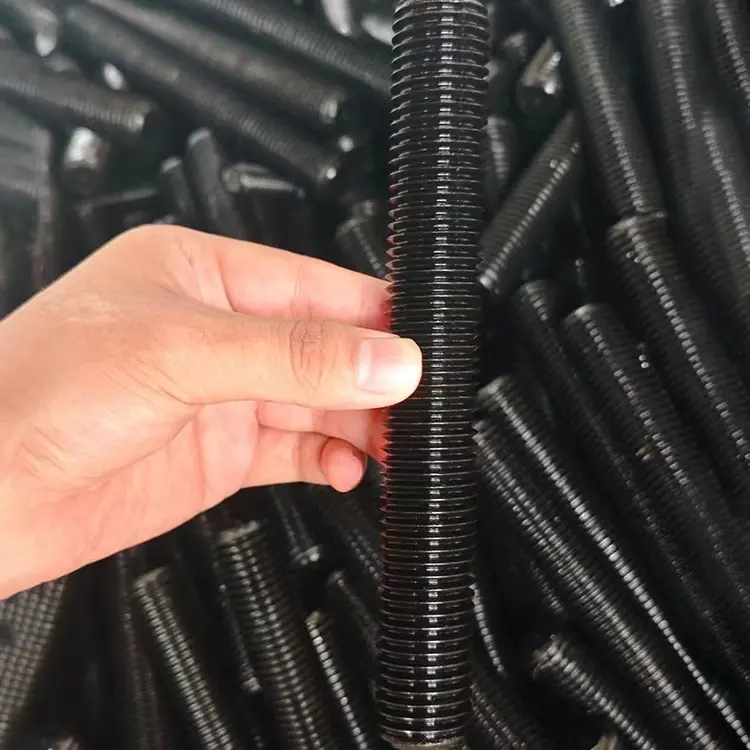Introduction to Stud Bolts
Stud bolts are a vital fastener type used extensively in construction, engineering, and manufacturing industries. Unlike conventional bolts, stud bolts have no head and feature threads on both ends or along their entire length. This allows for nuts to be screwed onto both sides, providing a secure, robust connection ideal for a range of applications, including high-pressure and high-temperature environments like pipelines and pressure vessels.
Specifications and Standards
Stud bolts are manufactured in accordance with various international standards, such as ASME B18.31.2, ASTM, and DIN. These standards ensure uniformity in dimensions, tolerances, material strength, and performance, making them reliable components across industries. One commonly used standard, ASTM A193 B7, governs alloy steel stud bolts, which are particularly designed to endure tough conditions.

Applications of Stud Bolts
Stud bolts are often used in scenarios where the joint needs to be disassembled and reassembled frequently, such as in machinery and maintenance tasks. Their symmetrical design ensures even tension distribution, reducing wear and damage to the connected parts. Stud bolts are highly preferred in industries requiring secure fastening under extreme stress, including petrochemical plants, refineries, and oil & gas pipelines.
Material Selection and Benefits
Stud bolts can be made from a variety of materials such as carbon steel, stainless steel, and alloys. Stainless steel bolts, for instance, are ideal for environments where corrosion resistance is essential. For applications in high-temperature or chemically exposed environments, alloy steel stud bolts with coatings like zinc or PTFE (Teflon) offer enhanced durability and corrosion resistance.
Installation and Usage
To install a stud bolt, one end is fastened into a tapped hole or surface, while a nut is screwed onto the other end. When tightened, the nut applies clamping force, securing the joint. The use of heavy-duty nuts on both ends ensures reliable load distribution across the connected surfaces. Additionally, stud bolts are easy to replace, making them an efficient and economical choice in scenarios requiring frequent maintenance.
Conclusion
Stud bolts are essential components in industrial applications, offering a reliable, reusable, and high-strength solution for securing components. By adhering to industry standards and selecting the appropriate material for specific conditions, they ensure safe and durable fastening across a wide range of environments.